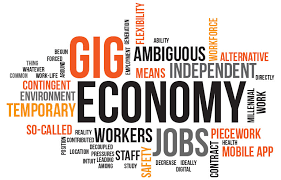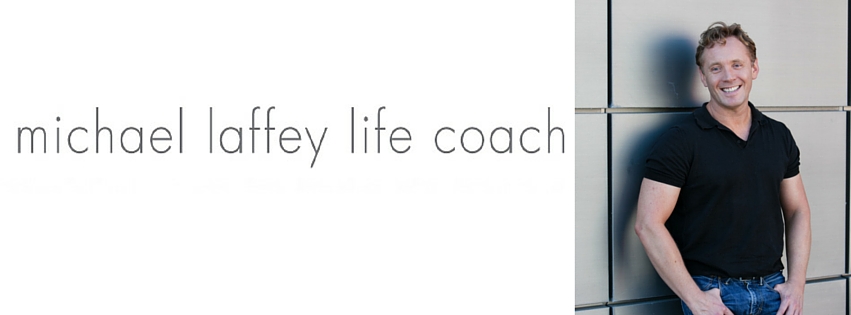Is the Gig Economy and the Evolution of Work Costing Us Our Wellbeing?

The traditional model of work has changed. The 9-to-5 is pretty much over.
What were traditionally four types of employment; full-time, part-time, freelance / contractor or business owner have evolved in response to both technical and social change.
How we work today is delivered in a variety of ways:
- flexible working hours
- flexible working arrangements to work from home/remotely
- cottage industry (eg. a small, probably, home-based business in addition to a “day-job” that provides a marketable outlet for un-used skills, a creative talent or a passion)
- zero-hours contracts and,
- the latest of them all, the gig-economy where people pick up small and casual bits of work, such as through Uber, Deliveroo or PeoplePerHour and Fiverr
Each, in its own way, answers an employment need while allowing flexibility for people in how they work. They each have pros and cons which is not the point of this article.
While each has its pros and cons, common messages from the workplace are:
- Higher stress levels
- Increased levels of dis-satisfaction, frustration or unhappiness
- Uncertainty about strategic direction
- Uncertainty of job permanence
- A sense of powerlessness or control of workload and the work environment
It doesn’t take much to work out that greater demands facing businesses filters down to employees.
Here’s an insightful article in The Conversation, Canada edition, which looks at the effects of the gig economy on people who work within it. It’s really worth a read.
What are the headline numbers?
1 in 10 workers in the UK works in the gig economy (10%)
1 in 5 workers in Canada works in the gig economy (25%)
Gig economy workers are:
- 50% more likely to report feeling lonely
- 40% more likely to report feelings of lack of control
CONTRIBUTORS TO THE PERSONAL COST of GIG WORKING
Entry
The gig economy is easy to enter for both the person providing the skills and the company through which they work. Start-up costs are probably sunk in an existing laptop, Internet, car/bike, phone set-up.
Work Connections; When Less is Less
Gig and remote working relationships are often at arms-length and the tasks are probably small or specific. The person delivering what the job requires of them, may not know the end purpose of what they are being asked to provide. I consider it digital piece-work
The cost to the person supplying this work is often measured in a material way -e.g. any agreed hourly labour rate or for materials. These costs are tangible. The intangible cost, which is not recouped, is less personal interaction and a lower sense of purpose in the work they do. This is especially true for remote-workers.
At the same time there is increasing voice being given to what engages “employees”. Often times it’s positive management, interaction and a sense of meaning in their work. This is reported to be especially true for millennial and Gen Z workers.
Therefore, a lack of connection with a collective purpose is what I think feeds the dis-empowerment and loneliness mentioned in The Conversation article..
Digital interactions do not replace what personal interaction does. And in the same way as technology and AI is moving toward automating low-skilled manual work, so it will be for lower-skilled digital work (see World Economic Forum article below).
Filling the Purposeful Gap
If we are not finding enjoyment in our work, better to admit it to ourselves quickly. We need to determine the usual relationship questions, is it me, is it you is it us or is it something else?
Sometimes relationships meet a natural end. At other times it’s about whether an external change has occurred and what effect that has had.
Sometimes “work” is simply that. It is not a career or a ladder to somewhere. It is simply about providing skills for a monetary exchange. Gig work may play a large piece in needing to enjoy a sense of greater purpose in other ways. These could be:
- appreciate that the money earned contributes to a saving goal, or provides for a loved one
- acknowledge that any work flexibility means that our other time is used for a more purposeful outcome; e.g. study or training or your own business idea
- making an effort to meet with people who share our interests and provide stimulus and encouragement away from a work environment. They may get to know the more rounded “you” which work may not allow for. Conversely, work may discover a side of you which they find enriching and interesting.
Closing Thoughts
In a world of increasing work flexibility the boundaries of work and the other parts of life are more permeated than they once were. Technology also means that we are less likely to leave the job behind or switch off when we step away from our desks.
The relevance of work isn’t diminishing but how we relate to it and how people deliver their skills and services is evolving.

Employee well-being is an increasing requirement of employers; offering training, support and tools for their employees to draw upon. This may be sketchy in a gig-economy.
As individuals, our well-being is often a barometer of how well we are managing our lives; weighing up achievements, progress, stress levels, resilience and aspirations.The narrative of how these inter-play is important. Reading the positive signs and the negative warnings requires a level of personal honesty and emotional intelligence we may have appreciated until now.

RELATED:
UK Government (BEIS), Dept for Business Enterprise and Industrial Strategy – The experiences of individuals in the gig economy
The Guardian, Gig Economy in Britain Doubles.
World Economic Forum | Is This Really It for the Gig Economy?

